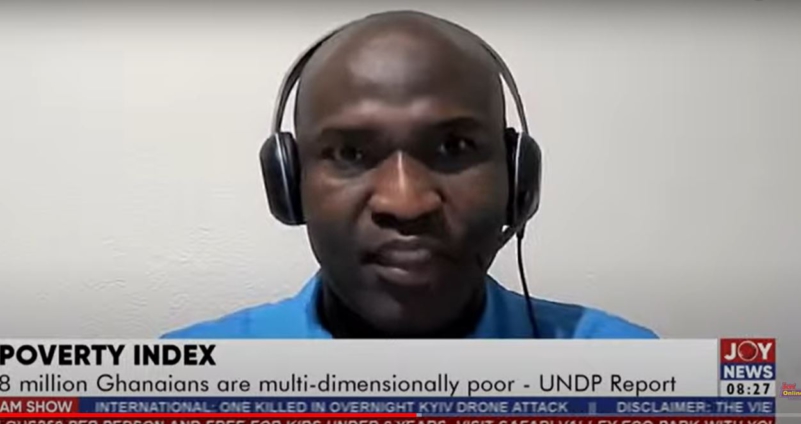An Economist, Dr Sa-ad Iddrisu, says although Ghana is one of the few countries in Africa to have poverty alleviation programmes, its implementation strategies have always been inefficient.
The expert says implementation strategies have become politicized. As a result, those who are to benefit from it have rather been sidelined.
His comments follow a recent report by the United Nations Development Programme (UNDP) which revealed the high rate of poverty in Ghana.
According to the report, 8 million Ghanaians, are multi-dimensionally poor.
Touching on this, the economist said policies put together can alleviate poverty if there is transparency.
“As a country, we are one of the luckiest in Africa to have poverty alleviation programmes but come to think of it, the implementation has always been a problem in Ghana. It’s not like we don’t have good policies to address the challenges of poverty, but the way we implement it, coupled with our political atmosphere, it turns everything into politics and shifts the benefits away from the people that actually need it,” he said on JoyNews’ AM show on Thursday.
Citing the Livelihood Empowerment Against Poverty (LEAP) policy, the expert said although it is a viable policy, his research on the policy reveals that there is no online portal where one could apply to be enrolled.
This he explained would make it difficult for people of old age and others who evidently need such a programme to survive to be denied the opportunity.
“How can we assist them to get LEAP? There is no online application,” he lamented.
He observed that the policy could be hijacked by politicians who are authorities at the district or constituency level and are responsible for determining who qualifies to be enrolled.
Making a comparison, Dr Iddrisu said the US system is such that anyone who qualifies to be admitted onto a poverty alleviation programme does not have to go around begging authorities but they only apply online after which the government makes provision for such people based on their income qualification.
Speaking also on the country’s National Health Insurance Scheme (NHIS), the economist said politics has rendered the programme quite irrelevant although it could have helped people in the wake of the multi-dimensional poverty case.
According to him, most health institutions nowadays do not regard the scheme anymore; they rely on “cash and carry.”
He concluded that the current resurgence in the poverty rate stems from poor leadership.
Latest Stories
-
500 small businesses to benefit from Republic Bank’s Caribbean Export programme
41 minutes -
5 dead as Islamic protesters clash with Nigerian military, police
42 minutes -
Black Kulcha Music releases ‘Love & Reasons Riddim’ album
59 minutes -
Thank you for the kind well wishes – Vice President on ill health
60 minutes -
McDan begins search for partners to establish industrial salt hub
1 hour -
T-bills auction: Government misses target for second time; interest rates fall marginally
1 hour -
President Mahama headlines AETC 2025 in Accra
2 hours -
Delivery of quality education: rehabilitation of classroom blocks enhances learning environment in North Tongu
3 hours -
Let Ghanaians know what happened to the Vice President on Friday – NPP
3 hours -
Tarkwa TNA Stadium to host MTN FA Cup semis
3 hours -
‘The aim of every coach is to win trophies’ – Prosper Ogum
4 hours -
Gold discovered in seven districts of Upper East Region – Minister
4 hours -
Ahafo Regional Minister raises alarm over rising drug abuse among youth
4 hours -
Tomato paste research: Who will give the consumer some clarity?
5 hours -
Fidelity Bank launches initiative to empower journalists in financial reporting
5 hours

